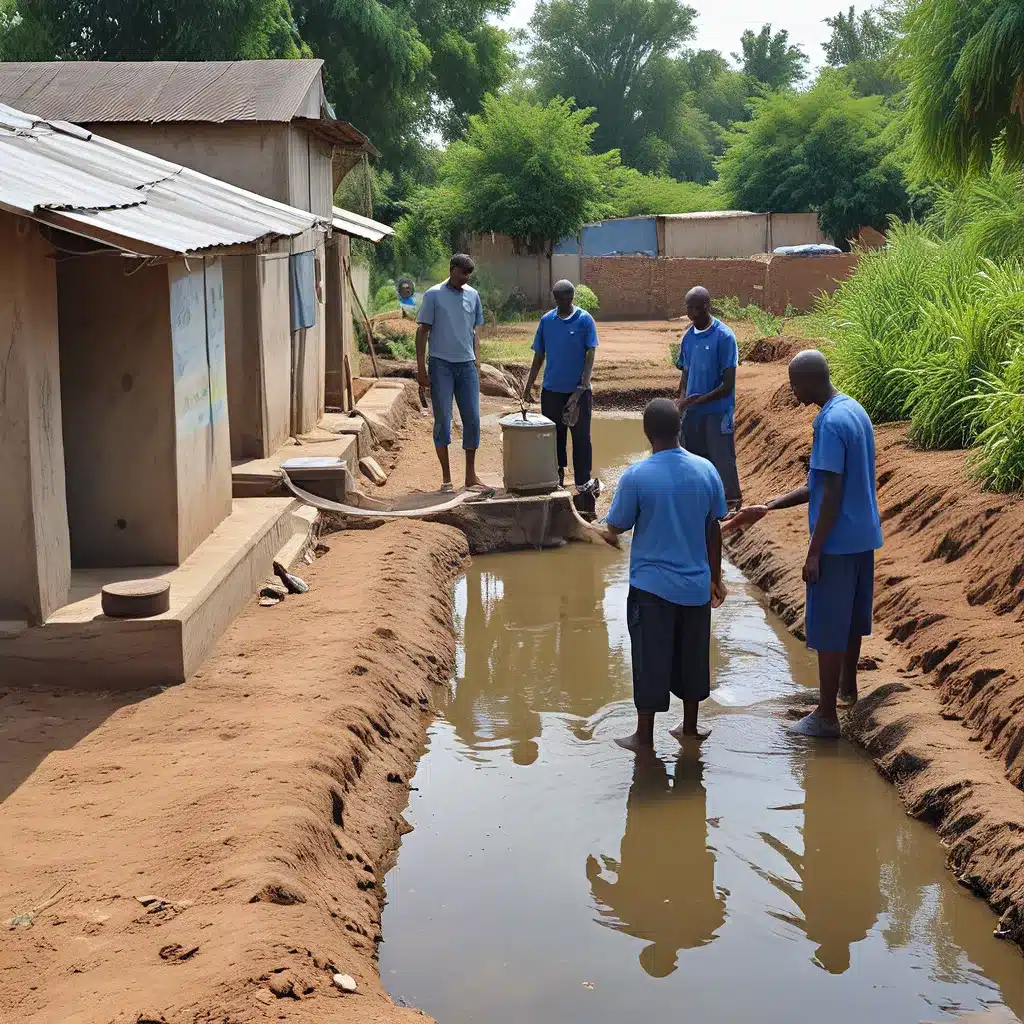
The Rise of Decentralized Wastewater Treatment: A Transformative Tide
Picture this – a rural town struggling with outdated infrastructure, plagued by environmental challenges and economic woes. Sound familiar? Sadly, this is the reality for far too many communities across America. But what if I told you there’s a solution that’s not only practical but also empowering? Enter the world of decentralized wastewater treatment – a game-changer that’s poised to revolutionize the way we approach rural infrastructure.
You see, the shift towards centralized wastewater facilities in the past may have been a boon for urban centers, but it’s left rural areas high and dry (pun intended). The economies of scale that made centralized systems viable in cities? Well, they don’t exactly translate to the countryside, where dispersed populations and limited resources make extending those massive sewer networks a logistical and financial nightmare.
But fear not, my friends! Decentralized systems are here to save the day. These compact, community-based solutions are tailor-made for rural settings, offering a cost-effective and sustainable alternative to the one-size-fits-all approach of the past. And the best part? They empower local communities to take charge of their own environmental destiny, fostering a sense of ownership and responsibility that’s just as crucial as the treatment itself.
Breathing New Life into Rural America
Imagine a world where rural towns aren’t just surviving, but thriving – where access to reliable wastewater infrastructure is the norm, not the exception. That’s the promise of decentralized systems, and it’s a promise that’s slowly but surely being realized across the country.
Take, for example, the case of Texas. The Lone Star State has been making some serious waves in the world of rural wastewater management. Thanks to legislative efforts like Senate Bill 28, which allocated a cool $1 billion for water infrastructure upgrades, Texas is leading the charge in transitioning communities from outdated septic systems to more advanced, centralized solutions.
And it’s not just Texas – Florida’s got skin in the game too. In regions like Lee County, the state’s Wastewater Grant Program has been funding septic-to-sewer conversions, all part of a massive $240 million initiative to reduce nutrient pollution and improve the health of the state’s waterways. Talk about a win-win!
These state-level actions, coupled with federal programs like the Clean Water State Revolving Fund, are providing the financial resources and policy frameworks needed to make decentralized systems a reality for rural communities. And let me tell you, the benefits are far-reaching.
Empowering Communities, Protecting the Environment
Decentralized wastewater treatment isn’t just about upgrading infrastructure – it’s about empowering communities to take control of their environmental destiny. By localizing waste management, these systems eliminate the need for extensive sewer networks, granting rural residents the autonomy to manage their own resources effectively.
Newterra’s research shows that decentralized systems can significantly reduce energy consumption compared to their centralized counterparts, with a whopping 58% reduction in electricity usage. This not only translates to direct cost savings but also underscores the environmental benefits of these community-based solutions.
But the perks don’t stop there. Improved wastewater treatment means cleaner waterways, healthier ecosystems, and a better quality of life for rural residents. Imagine a future where children can play in the local creek without fear of waterborne illnesses, where farmers can irrigate their fields with confidence, and where tourism thrives on the natural beauty of the surrounding landscape. That’s the kind of future decentralized systems can help create.
The Sustainable Path Forward: A Collaborative Effort
Now, I know what you’re thinking – this all sounds too good to be true. But the truth is, the future of rural infrastructure is bright, and it’s all thanks to a collaborative effort between government, industry, and local communities.
The EPA’s Closing America’s Wastewater Access Gap Program is a prime example of this collective approach. By partnering with the USDA and local technical assistance providers, the EPA is working to address the disparities in wastewater services, ensuring that underserved communities have access to the resources they need to upgrade their systems.
And it’s not just the feds getting involved. States like Texas and Florida are leading the charge, investing in targeted initiatives that tackle water scarcity, nutrient pollution, and the ever-pressing need for sustainable infrastructure. These efforts, combined with federal funding streams like the Clean Water State Revolving Fund, are paving the way for a future where decentralized systems are the norm, not the exception.
But the real heroes in this story? The local communities themselves. By embracing decentralized solutions, these towns are taking ownership of their environmental stewardship, fostering a culture of sustainability and resilience that will serve them well for generations to come. And the best part? They’re not going it alone – organizations like Inland Waters are there to provide the technical expertise and support needed to make these transformative projects a reality.
A Future of Empowerment and Sustainability
As I reflect on the journey of rural America, from infrastructural neglect to a future of autonomy and resilience, one thing is clear: decentralized wastewater treatment is the key to unlocking a more sustainable, equitable, and empowered future for these communities.
These innovative solutions aren’t just about upgrading pipes and tanks – they’re about giving rural residents the tools they need to manage their own resources, foster environmental stewardship, and create thriving, self-reliant communities. And with the support of forward-thinking government initiatives, industry partners, and a growing awareness of the benefits, I can’t help but feel a sense of excitement for what the future holds.
So, my friends, the next time you drive through a rural town, remember that beneath the surface, a revolution is brewing. A revolution powered by decentralized wastewater treatment, where communities are taking charge of their own destiny and paving the way for a greener, more sustainable future. And who knows – maybe one day, that rural town you once drove through will be the shining example of what’s possible when we empower local communities to take control of their environmental destiny.


